The Wintree Waltz

Chapter 5
Monday, it rained a kind of silvery veil over Ann Arbor. Jean, who was officially finished shooting photos for the spring series, was captivated by the light, but too sleepy, and too hung-over, to do anything about it. And so she stayed in bed much longer than usual, looking out at the slick-wet street from her little attic window, and waited for the house to empty before coming downstairs. When she couldn’t put it off any longer, Jean pulled on a pair of cut offs and made her way into the kitchen, where she toasted a bagel and made a pot of Earl Grey.
Perhaps there was something wrong about living in your childhood home this far into adulthood, about eating your parents’ bagels and drinking your parents’ tea. But it was comfortable. She’d certainly never been this comfortable in New York, where she’d shared a two bedroom with five women, and often skipped meals to make rent. But at least she had been there, the center of everything. At least she had learned to live on her own. If she had to do it again, she could. Which was not, perhaps, the most appropriate thought to have a month before your wedding. But it’s what she thought nonetheless, as she spread a honeyed cream cheese over a sesame bagel and poured Earl Grey from her mother’s funny little fairy teapot.
“I don’t want a house,” she said aloud, trying the thought on for size.
She looked at the teapot fairy, who smiled back at her, her head resting flirtatiously on her chin, daring Jean to say more.
“I don’t want to get married,” Jean told the teapot. “There, I said it.”
There, I said it. Jean heard back. I don’t want to get married. I don’t want a house. There, I said it.
It was different, somehow, from hearing your voice in your head. It sounded instead like hearing your voice recorded. Jean looked around her. The kitchen was empty. On the table, a part of the newspaper was messily folded, having been read and discarded hours before. Her mother would be at the animal shelter, Erin at one of her jobs, and her father off with his golf foursome, either playing in the rain or settling in for an early bourbon in front of the club’s large windows, talking about whatever men of their age talked about, politics or travel plans.
Jean lingered over her breakfast and paged through the discarded newspaper, allowing herself a peek at the classifieds in the back. All of the listed apartments were dull, suburban complexes situated around little man-made lakes and fountains. Not her style. And way out of her price range. She thought back to the cramped Brooklyn apartment she shared with five women after graduating from NYU, a dim fourth-floor walkup on the edge of Bushwick. She thought about the L train, and damp grey concrete. The jobs she had – a receptionist at a gallery during the day, a waitress at a café at night. The clothes she was expected to wear. The person she was expected to be. And now she was here, expected to be someone else.
She thought of the night before, of dancing with her family, and of how well John fit in. It felt good to have everyone together; it felt like things were starting to be the way they were supposed to be all along. Still, she couldn’t shake the feeling that something wasn’t right. That, in marrying John, she was giving up, or maybe giving in. She thought of his mother, declaring that the house they had looked at the day before was “perfect” for them. She wondered if Nancy even knew who she was, what she liked, what she wanted.
“I don’t know what I want,” she heard herself saying. “How could Fancy know if I don’t?”
Jean finished her tea and wiped the crumbs from her mouth. She thought of the photos she had taken the week before, of Clara’s student looking up at the trees in astonishment. If nothing else, Jean thought, she had her work. She knew that much.
On Friday, Jean had taken her favorite photo from Wednesday’s shoot and laid it out in Photoshop on a large canvas, so that she had nine inches of empty space above and below the 22-inch image. That weekend at Retna, she sent the file to their Epson Stylus Pro and peeled off a heavy print on inkjet canvas. Onto it, Jean decided, she’d layer the fantastical vision she’d had when she was shooting, of vines snaking up the trees, hiding all manner of life, of snakes diving deep into the earth and birds high above it all, watching the children as they looked up into the trees and down at the ground. The photo she worked with was an intensely contrasted black and white. She wasn’t sure if she would paint all of the children, or just one, a boy she’d captured looking up into the trees with amazement. And so she’d save the children for last, and start with hues of brown for the ground and trees. She’d then layer on hues of green, for the vines above ground and the snakes below. She’d paint creatures hiding in the vines, mice and chipmunks, their eyes, noses and tails all-but camouflaged.
Jean opened her studio windows to the rain and mixed shades of basic blue, red, yellow and white acrylic so that she had a palette of mud, sienna and umber. The deeper the ground, the darker and denser the earth would get. Further up, waves of beetles would ride swells of mud, and armies of ants would tunnel deep into the ground. Black and green garter snakes would vein the earth. Above ground, the paint would meet the photo, the tame, wood-chipped trail, the children in the forest’s understory. Vines of Americana and Fox Grape would cover the bare trees like dresses of yarn and lace. This was her vision, anyway. And as she worked, she could not keep up. Each time she had an idea, she’d stop to write it on the edge of the canvas, so that she could continue layering hues of brown onto the canvas, creating the painting’s visual and literal foundation.
She painted until the day grew tired, until her stomach rumbled with hunger, until the rain stopped and the birds began singing. She thought “Singing! Sound! There should be music! An audio component!” She’d have to capture, and mix, the sounds of the birds with the sounds of the children. Why hadn’t she thought of it before! It was all coming together – in her head at least, and only in her head. In front of her, the canvas was still only a black and white photo with a layer of earth below.
Jean ignored her hunger and took notes, planning the painting layer by layer. In the margins, she wrote:
What native birds?
What migratory birds?
What made up, invented, fairytale birds?
She took her pencil and drew heavy lines under the words What made up, the perfect title.
When Jean was finished, she took off her smock and headed back into the house, ravenous with hunger. She had a sort of giddy, blissful exhaustion, and as she pulled food from the fridge, she thought about the painting, what it could be. She was just finished making a sandwich when there was a knock at the door, the severity of which startled her.
She peeked out the window in the dining room and saw John’s mother, standing on the porch.
“Nancy!” Jean exclaimed, opening the door.
“Jean,” Nancy said, looking down a perturbed nose at her.
“Come in,” Jean said, stepping out of her way.
“Do you never answer your phone?”
“I was in my studio. I tend to leave the phone upstairs when I’m working. It’s too distracting,” she said brightly. Too brightly, it seemed, for the situation.
“We had lunch plans. At the caterers?”
“Again?” Jean asked.
“Yes, again Jean. I told you about it yesterday.”
“I’m sorry… I guess I didn’t…”
“I swear, Jean, sometimes I think I’m the only one who cares about this wedding.”
“I’m sorry,” Jean said again.
“The menu’s decided. I’m sorry for your sister but the vegan food was terrible so I nixed it. No reason everyone should eat quinoa just because she’s a vegan.”
“I’m sure we can work something out,” Jean said.
“I’m sure,” Nancy said, offering a thin, red lipsticked half smile. “What are you doing tomorrow?”
“I’m painting in the morning and working at Retna in the afternoon.”
“There’s a house that just went on the market. It’s amazing. And very close to here. Can I get you to come take a look at it with me? John will be at work, of course.”
“I’ll be at work too,” Jean said, firmly.
“Fine. I’ll go and see it by myself. If I like it, you and John can come and see it next weekend, John Senior and I are traveling this weekend. I just hope it doesn’t get snatched up by then. It’s a tight market, Jean.”
“Okay,” Jean said. And, after a lull, “I was just about to have a snack. We had a big dinner here last night and there are a lot of leftovers, so if you want…”
“Thank you but I’m still full from lunch. I’ll let you get to it though.” And with that, she was off. Jean imagined Nancy flinging a cape behind her as she went.
The following Saturday, Jean and John met his mother at a house on Aberdeen Drive, a heavily wooded street in Ann Arbor Hills, an exclusive neighborhood east of downtown. When they pulled into the driveway, Jean’s jaw dropped at the size and spectacle of the house. “She’s got to be kidding.”
“Just…try and keep an open mind,” he said.
“When you say ‘open mind,’” Jean started, carefully choosing her words, “I feel like what you’re really saying, is ‘just go along with it.’”
“That’s not what I’m saying.”
“It doesn’t make sense for us to live in a house this…grand.”
“It is pretty great, isn’t it?” he said, staring up at the stately 4,000 square foot house with fifteen windows and a Juliette terrace.
“We’re only two people,” she said.
“Not for long,” he said, squeezing her thigh.
“John,” she started, “I don’t want…”
But his mother pulled up behind them with the realtor, and John got out of the car to greet her.
“It’s beautiful!” he said.
“And just a few blocks from the river!” Nancy said.
Jean stared up at the brick behemoth. She suddenly had a feeling of being trapped.
“Shall we take a look?” John said, taking her hand.
Inside, everything was immaculate. The walls were freshly painted a radiant yellow. The wooden floors shone. The kitchen was enormous, with large windows that looked out onto a manicured lot with evergreens that had gone in less than ten years before. Jean thought of the lot that had been cleared to build the house, of the old growth hardwood trees that had been removed and replaced with fast-growing hemlocks. It made her ill. She couldn’t believe that anyone would think she would want to live there, much less John, the man she was marrying.
She turned to him, cast him a pleading look. When he only smiled back, Jean said, “It’s too nice. Too…formal. How will we even fill it?”
“With babies,” Nancy said, walking in from the atrium.
“I mean with what stuff?” Jean said.
“Well,” John said, thoughtfully. “We have a few family heirlooms, right mom? And whatever we need, we’ll buy.”
Jean tried to imagine it – a life inside a 4,000 square foot palace on Aberdeen Drive, bouncing babies on her knee while sitting on someone else’s family heirloom. It was somebody’s life, but it wasn’t hers.
“It’s…ghastly,” Elaine said later as Jean showed her the photos online. “Garrish. That yellow.”
“I know,” Jean said. “I didn’t know what to say. Nobody’s ever tried to give me a house before.”
“Nor me.”
Erin sat across from them, silently watching her sister. How could Jean not want to live in a place like that…with a man like John? All Erin had to do was see the large room off the kitchen, with the series of windows overlooking a landscaped lawn to picture it furnished, to picture children running through. She could practically hear herself calling “Dinnertime!”
“How do you say no to something like this?” Jean asked.
“Well,” Elaine said, pouring a second cup of tea and looking down into it, perhaps searching for the words. “Maybe you can’t. Not exactly. Not without saying no to a lot of other things.”
“What do you mean?” Erin asked, putting her cup down and leaning forward.
“I mean,” Elaine said carefully, “your sister has a lot to think about.”
“I wouldn’t have to think a second about it,” Erin said.
“I suppose you’d love to live in a palace on Aberdeen Drive,” Jean said.
“What’s wrong with wanting to be normal?” Erin said.
“What’s normal about living in a palace before you’re thirty?” Jean said.
“Oh so you’d rather live in mom and dad’s attic?”
Jean shrugged. She wasn’t interested in giving Erin a fight.
“I’m too far into this,” Jean told her mother after Erin got up and left the table.
“You can call it off at any time.”
“I don’t feel like I can though. I feel like… it’s already been decided.”
“Did I ever tell you about the boy I almost married?” Elaine said, looking up from her tea.
“No!” Jean said, incredulous.
“It’s a very long very old story. We weren’t quite as far into the game as you are, with the caterer booked and invitations out, but… the point is, I almost married him and I didn’t.”
“Who was he?”
He was a football player. Very dumb but very pretty. I was twenty. It was summer. I got carried away.”
“What happened?”
“I left for my semester abroad, he turned pro. I stayed out of the country for a few years and when I came back I met your father in line at the market.”
“He said, ‘What are you going to do with those mushrooms,’” Jean said, recounting a story she’d heard hundreds of times.
“And I said, ‘I’m going to cook them.’ And then I had him over for dinner and the rest is history.”
“I’ve never felt about anyone the way you feel about dad.”
“Not yet, and maybe not about John…but you will.”
“What should I do?” Just thinking about canceling the wedding gave Jean a stomachache, but also a rush of relief.
Elaine shrugged. “Entirely up to you my dear.”
~ ~ ~
Later, Erin was on her way out to meet Parker for the final concert of the Ann Arbor Summer Fest. She didn’t know the band, but she didn’t care. She was irritated with her sister for reasons that didn’t seem entirely fair – even to her. She wanted a night out where she didn’t think about anything, not about Jean or John, or anyone.
On her way out, she saw the teapot on the table, and couldn’t resist. She lifted it and gave it a shake, to see if there was anything left. When there was, Erin poured the last of the tea into her cup, which was still on the table from earlier. She stood and waited, watching the teapot fairy, and waiting for her to reveal her secrets. But the fairy was silent.
“OK, so I’m crazy,” Erin said.
OK, so I’m crazy, she heard back.
Erin pulled out a chair and sat down at the table, and stared at the fairy.
“Tell me,” she said.
Tell me, tell me, tell me, she heard herself say.
Erin looked at her phone. She was late. She rolled her eyes, frustrated with herself. What am I going to do anyway? She thought. Break them up? Go after John? Be serious.
I feel like…it’s already decided, she heard her sister say.
And? Erin thought, staring intently at the fairy.
Entirely up to you, my dear.
~ ~ ~
There was a crush of people at the festival. Erin couldn’t find Parker. Her phone was about to die. But the band, a Swedish quartet with a female lead singer, was good. And soon, Erin found that she was dancing, and that, for once, she didn’t care what other people thought of her. As the sun set, and the crowd grew, Erin jumped and danced, and pumped her fist in the air. She hooted and wailed at the end of every song. She started dancing with the others around her, a community of ecstatic strangers, looking over her shoulder for Parker all the while. By the time the set was over, it was fully dark, and her phone was dead. Erin looked around as the crowd dispersed, thinking that Parker would suddenly appear.
Instead, when the crowd cleared away, and Erin found herself standing alone in the street, it wasn’t Parker she saw, but John.
“Hey, Erin,” he said, with a quick wave.
“Hey,” she said, self-conscious again. She wiped sweat from her brow and face.
“You here alone?”
“Yeah. I was supposed to meet Parker but I couldn’t find him.”
“A lot of that going around. I was supposed to meet your sister.”
“Oh,” Erin said, her heart beating hard in her chest.
“You wanna grab something to eat?”
“OK,” she said, with a smile she hoped wasn’t too eager.
They walked several blocks west, to get away from the crowds, which had filled the restaurants along State Street, and ended up on 5th.
“Do you like Thai?” he asked.
“Yeah,” she said, “of course.”
They ducked into a small dark restaurant Erin had never been in before. It was crowded, but had a table open near the back.
“I feel bad that I wasn’t able to find Parker,” she said. “I hope he’s not worried.”
“Do you want to use my phone?”
“I don’t know his number,” she said, shaking her head.
“You kids and your Google brains,” he said, shaking his fist. “Just kidding, I don’t know anyone’s number anymore either.”
“So, um, how’s it going?” she asked, though she figured she already knew.
“It’s fine,” he said. “It’s good.”
“I heard you looked at a house today.”
“What did she say?” he asked, conspiratorially.
“I don’t know,” Erin shrugged, demurring.
“Come on, E,” he said. So he had a nickname for her.
“Um, nothing really,” she said, searching her memory for something she could tell him. “She was just showing the house to my mom.”
They ordered Pad Thai and chicken in basil sauce to split.
“How’s it going at the hospital?” he asked.
“It’s fine,” she said, nodding. She looked across the table at him. His handsome, waspy, face; his broad shoulders; his serious mouth.
She took a sip of water.
“You’re shaking,” he said. “Are you OK?”
She heard her mother’s voice say, Entirely up to you, my dear.
“Would it be so terrible if you didn’t get married? I mean, if you didn’t marry Jean?”
“What?” he asked, surprised and maybe hurt. “What did she say?”
“Nothing.”
“Erin,” he said, leveling with her.
“John.”
“What is going on?”
Erin shook her head. She had dug a hole she didn’t know how to climb out of.
“It’s nothing,” she said finally. “None of my business.”
“But?”
“For starters,” Erin said, looking down. “She hates the house. That kind of thing isn’t Jean at all.”
“Oh,” he said, dumbfounded, sitting back in his chair.
She decided to take a risk. “I would love to live in a house like that. To be married, to have lots of kids… But, Jean… she’s more… she does her own thing.”
“Which is what I love about her.”
“Right,” Erin said, “Sure.”
“Tell me what I can do,” he said.


